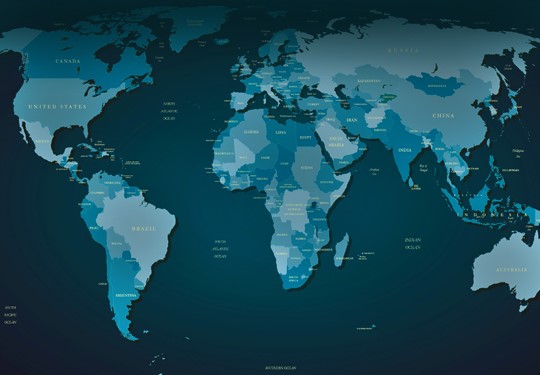The Dallas Area Rapid Transit Authority (DART) is a regional transportation authority in the State of Texas. DART was organized to provide public and general transportation services to 13 cities in five counties: Collin, Dallas, Denton, Ellis, and Rockwall. DART has nearly 3,700 budgeted positions and employs bus operators, train operators, mechanics, police, and professional and semiprofessional staff.
DART’s Human Capital (HC) Department provides enterprise-wide human resources services. Specifically, the HC Department is responsible for human resources strategy, benefit program administration, compensation strategy and oversight, talent acquisition, employee development and training, employee communications, employee assistance, HR-related vendor management, and HR- related transaction processing.
After several years of poor HC leadership, headcount reductions, and staff attrition, the Department was in disorder. DART’s Board of Directors and management team realized that it would take a major, focused initiative to rejuvenate the HC Department. They acknowledged that “HC business processes must be re-engineered, policies and procedures developed and documented, best practices adopted, staffing assessed for key knowledge, skills and abilities, and a new organization structure established.”
The Dallas Area Rapid Transit Authority selected Iknow to help lead their transformation efforts.
This initial project was organized into five work streams.
1. Diagnostic Review. Iknow started the assignment by conducting a thorough review of the HC Department’s processes and practices. Iknow conducted 46 interviews with two groups of HC stakeholders. One group was internal customers of the HC Department and included almost all of DART’s senior leadership team. The second group was the HC Department’s staff. Iknow prepared two customized interview guides and conducted initial interviews that lasted between 30 minutes to more than two hours each. A second round of interviews was performed, when appropriate. Iknow prepared detailed interview summaries to capture a complete record of all of the information collected.
In parallel, the Iknow team reviewed and analyzed relevant documentation on DART’s policies, practices, standard operating procedures (SOPs), systems, and internal controls.
2. Document the Current-State and Future-State HC Business Processes. The objectives of this work stream were to capture the “as-is” business processes for the Human Capital Department in its entirety, to develop recommendations on the “to-be” business processes, and to advise on business process improvements, automation opportunities, and system configuration changes that could increase process efficiency, staff effectiveness, and data and transaction accuracy.
Iknow started this work stream by reviewing DART’s process descriptions, automated work flows, SOPs, and any other relevant documentation on the core HC business processes. Specifically, Iknow conducted detailed analyses of DART’s 34 SOPs and the 89 automated DARTnet workflows to understand HC’s role and involvement in each. This analysis also included undocumented HC processes and practices.
3. Develop a New HC Organizational Structure. The objective of this work stream was to develop a new HC organizational structure that would support the new processes, information flows, and controls. Iknow incorporated several best practices into the new HC organization structure, including introducing alignment of the organizational structure with the HC business processes, introducing the concept of “high performing” work-centric teams, and flattening the HC Department’s span of control.
4. Compliance Review. This work stream analyzed DART’s compliance with federal, state, and local human resources-related laws, statutes, rules, regulations, and guidelines. Iknow reviewed DART’s Administrative and Hourly Employment Manuals, reviewed DART’s implementation of FTA Complaint No. 13-0163, and studied the implications of the FTA’s Circular 4704.1 as part of the compliance review.
5. Implementation Plan and Timeline. Iknow planned and conducted a half- day offsite workshop to discuss the HC improvement ideas and develop an implementation roadmap and timetable. The offsite was held at SMU’s Cox Executive Education facilities.
Subsequent iterations of the plan resulted in a portfolio of 21 projects as part of the initial wave of the Implementation Phase. Some of the various projects included: Redesign the Employee Recruitment Process, Update the DART Hourly Employment Manual and the Administrative Employment Manual, Relaunch the People Center, Develop and Implement a HC Data Analytics and Reporting Function, and Design, Develop, and Implement a HC Records Management Program.
The recommendations and roadmap were used by the Vice President of Human Capital to support her request for resources and funding for process redesign implementation.


